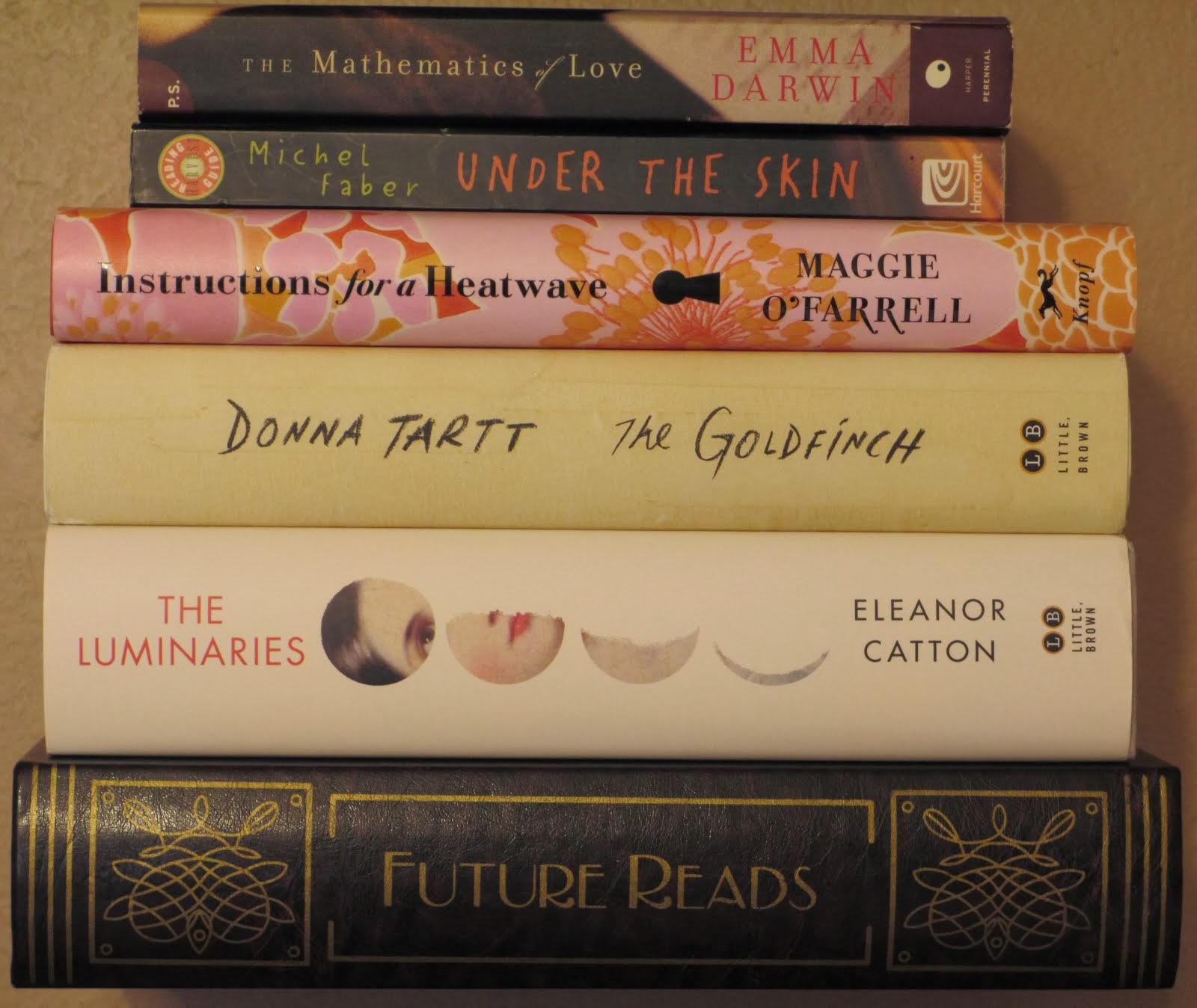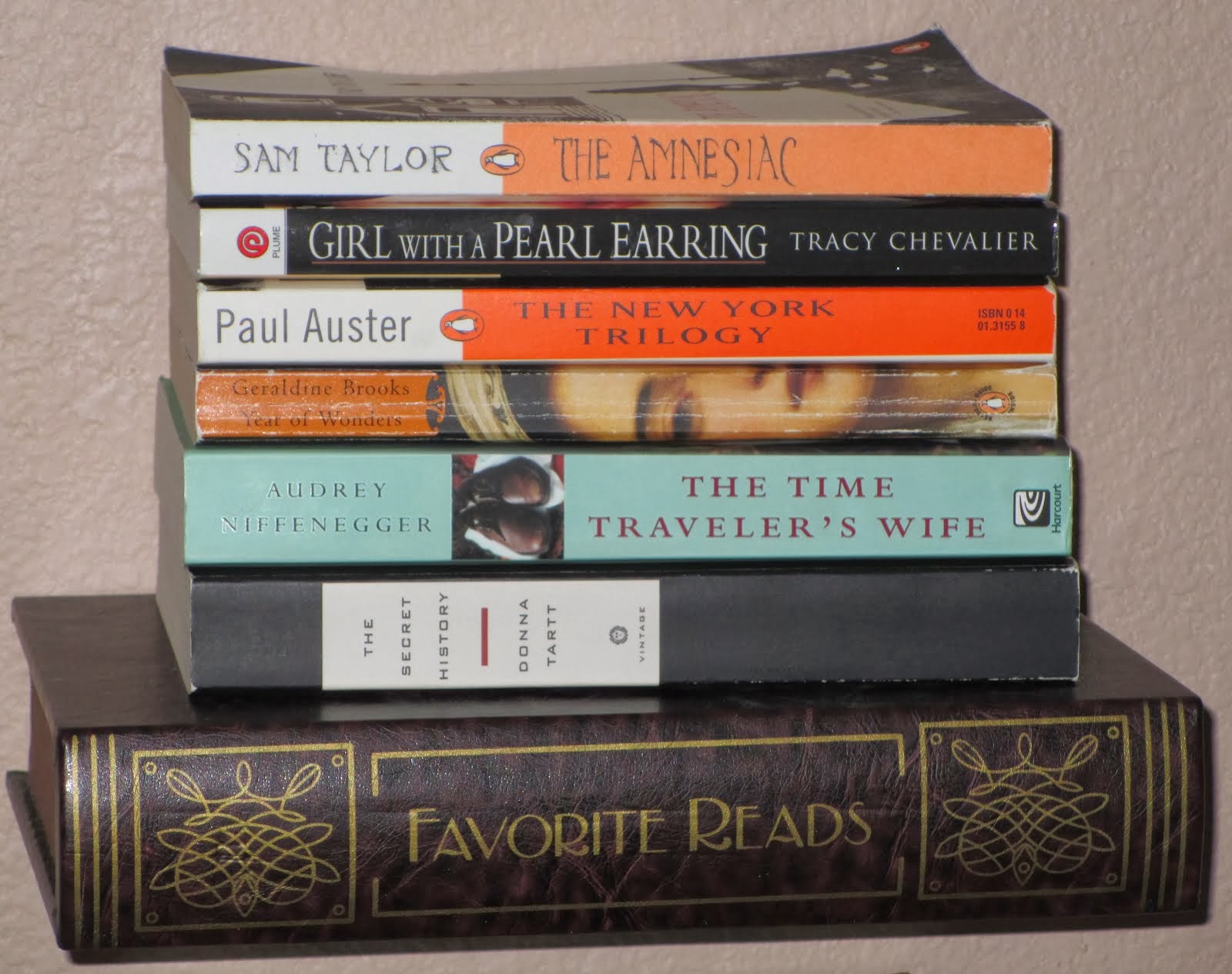Rasputin (1869-1916) is someone who has always drawn my curiosity, just like the Borgia family, the Nephilim, and the Bermuda Triangle. Since I've been reading Anna Karenina (yes, I'm STILL reading it) and realizing my knowledge of Russian history is sadly lacking, my mind has drifted back to this biography of Rasputin which I read several years ago.
For my taste, this book was too much about The Times and not enough about The Life. Back when I read it, I was more compelled to find out about the myths surrounding Rasputin than about the truths or underlying reasons for the existence of those myths. (In retrospect, however, the myth-busting aspect of it seems more interesting). I must admit I found it rather dull and dry reading, though it nearly became a page-turner in the last 40 pages as the plot to murder Rasputin got underway. (That's not really a spoiler, is it? I mean, you knew he died, right?)
I was also disappointed that the execution of the Tsar and his family received barely any mention, but as those killings occurred approximately 18 months after Rasputin’s death, it makes sense that this book would not encompass that event. But now I want to read about “the rest of the story,” including the royal family’s execution, and I want to read about the stories of their daughter Anastasia possibly surviving with amnesia (another topic I've always wondered about). The author of this book briefly made it clear that he believed the real Anastasia died with the rest of her family.
To quickly sum up the author’s take on Rasputin: He was a Siberian peasant who set out on the path to infamy by taking to the road as a pilgrim in search of salvation. It seems he found a “religion” which was one-of-a-kind, cobbled together from an assortment of practices (both accepted and unacceptable) found in Russia at the time. Various disciples followed him, beginning with those in the clergy and progressing up to Tsar Nicholas and his wife, the Tsarina Alexandra. Rasputin’s control over the royal family was not absolute (although it came closer to complete domination in regard to the tsarina), but his influence was quite potent, especially in contrast with his humble beginnings.
It seems people generally had one of three reactions to Rasputin. Some (few, mostly men) could see through Rasputin from the moment they met him, and had no respect for him. Others (especially women) were instantly and completely enthralled by him as a holy man, but later their eyes were opened by all the damning evidence proving his righteousness a sham. Very few had the third reaction, which was to be captivated by him from beginning to end, ignoring all evidence of immorality, no matter how clear-cut it was. There were only two people (possibly three) who had this latter sort of reaction: the tsarina, her friend and confidante Anna Vyroubova, and (the possible third) the tsar.
When people saw Rasputin for what he was, what did they see? He was a drunk and a lecher. He used sexuality in his “religion,” either challenging himself to resist temptation by standing in its path, or with the laughable notion that God wants us to sin so that he has something for which to forgive us. It seems Rasputin was very badly behaved, becoming increasingly depraved throughout his life, and usually not doing much to hide that fact.
This book somewhat dispelled the myth that Rasputin was a puppeteer controlling the tsar and tsarina. He was able to get many government appointments passed, usually by directing the tsarina to suggest appointments to the tsar, but he did not always succeed at this. What was clear to me through this book was that Rasputin really didn’t seem to have a Big Plan. He was not following an agenda. Though he did frequently stress the desire to avoid needless shedding of blood (in war), he seemed to have no more cohesive goal than to enjoy his power as a generous benefactor (meaning it didn’t seem that he pushed any government appointment for political reasons; he did it just because he could--almost as if he was merely doing it to impress people), and to live the good life, doing whatever pleased him.
The author writes that Rasputin was capable of mild foresight, giving some successful predictions that were vague enough to merely be guesses guided by common sense. The author also mentions that his foresight must not have been anything great if he could not foresee his own murder. However, in the way the author describes the night of the murder, there was an inkling of the possibility that Rasputin did know but was resigned to his fate.
It appears indisputable, although the book left the mechanism unexplained, that Rasputin was capable of healing, namely with the tsarevich Alexander Nicolaevich who suffered from hemophilia. Rasputin was always able to stop Aleksey’s episodes of bleeding, even (at least once) from afar. The author says perhaps Rasputin would put off his arrival until after the crisis was over, making the supposed "healing" merely a matter of timing; or perhaps he knew of some sort of peasant remedy. If not one of these two explanations, then perhaps his ability might have been truly supernatural.
I have not yet decided if my curiosity about Rasputin was sated by this book. I do think that de Jonge covered all available information. His book was very well-researched and had so many sources that I find it impossible to believe that he left out any information that might be found elsewhere. In other words, although there may have been more to the life of Rasputin, any other information has been irretrievably buried in the sands of time. I find myself coming to the conclusion that there would be no point in reading a different book about him in hopes of finding new information. However, I bet I would enjoy reading fiction about him.
Have you read any good books about Rasputin, or about the execution of the Russian royals in 1918?
For my taste, this book was too much about The Times and not enough about The Life. Back when I read it, I was more compelled to find out about the myths surrounding Rasputin than about the truths or underlying reasons for the existence of those myths. (In retrospect, however, the myth-busting aspect of it seems more interesting). I must admit I found it rather dull and dry reading, though it nearly became a page-turner in the last 40 pages as the plot to murder Rasputin got underway. (That's not really a spoiler, is it? I mean, you knew he died, right?)
 |
| Anastasia Nicolaievna |
To quickly sum up the author’s take on Rasputin: He was a Siberian peasant who set out on the path to infamy by taking to the road as a pilgrim in search of salvation. It seems he found a “religion” which was one-of-a-kind, cobbled together from an assortment of practices (both accepted and unacceptable) found in Russia at the time. Various disciples followed him, beginning with those in the clergy and progressing up to Tsar Nicholas and his wife, the Tsarina Alexandra. Rasputin’s control over the royal family was not absolute (although it came closer to complete domination in regard to the tsarina), but his influence was quite potent, especially in contrast with his humble beginnings.
It seems people generally had one of three reactions to Rasputin. Some (few, mostly men) could see through Rasputin from the moment they met him, and had no respect for him. Others (especially women) were instantly and completely enthralled by him as a holy man, but later their eyes were opened by all the damning evidence proving his righteousness a sham. Very few had the third reaction, which was to be captivated by him from beginning to end, ignoring all evidence of immorality, no matter how clear-cut it was. There were only two people (possibly three) who had this latter sort of reaction: the tsarina, her friend and confidante Anna Vyroubova, and (the possible third) the tsar.
 |
| Would you want to have sex with this man? |
This book somewhat dispelled the myth that Rasputin was a puppeteer controlling the tsar and tsarina. He was able to get many government appointments passed, usually by directing the tsarina to suggest appointments to the tsar, but he did not always succeed at this. What was clear to me through this book was that Rasputin really didn’t seem to have a Big Plan. He was not following an agenda. Though he did frequently stress the desire to avoid needless shedding of blood (in war), he seemed to have no more cohesive goal than to enjoy his power as a generous benefactor (meaning it didn’t seem that he pushed any government appointment for political reasons; he did it just because he could--almost as if he was merely doing it to impress people), and to live the good life, doing whatever pleased him.
The author writes that Rasputin was capable of mild foresight, giving some successful predictions that were vague enough to merely be guesses guided by common sense. The author also mentions that his foresight must not have been anything great if he could not foresee his own murder. However, in the way the author describes the night of the murder, there was an inkling of the possibility that Rasputin did know but was resigned to his fate.
It appears indisputable, although the book left the mechanism unexplained, that Rasputin was capable of healing, namely with the tsarevich Alexander Nicolaevich who suffered from hemophilia. Rasputin was always able to stop Aleksey’s episodes of bleeding, even (at least once) from afar. The author says perhaps Rasputin would put off his arrival until after the crisis was over, making the supposed "healing" merely a matter of timing; or perhaps he knew of some sort of peasant remedy. If not one of these two explanations, then perhaps his ability might have been truly supernatural.
I have not yet decided if my curiosity about Rasputin was sated by this book. I do think that de Jonge covered all available information. His book was very well-researched and had so many sources that I find it impossible to believe that he left out any information that might be found elsewhere. In other words, although there may have been more to the life of Rasputin, any other information has been irretrievably buried in the sands of time. I find myself coming to the conclusion that there would be no point in reading a different book about him in hopes of finding new information. However, I bet I would enjoy reading fiction about him.
Have you read any good books about Rasputin, or about the execution of the Russian royals in 1918?
 |
| The Romanovs |





























